Fair Trade and Gender Equity
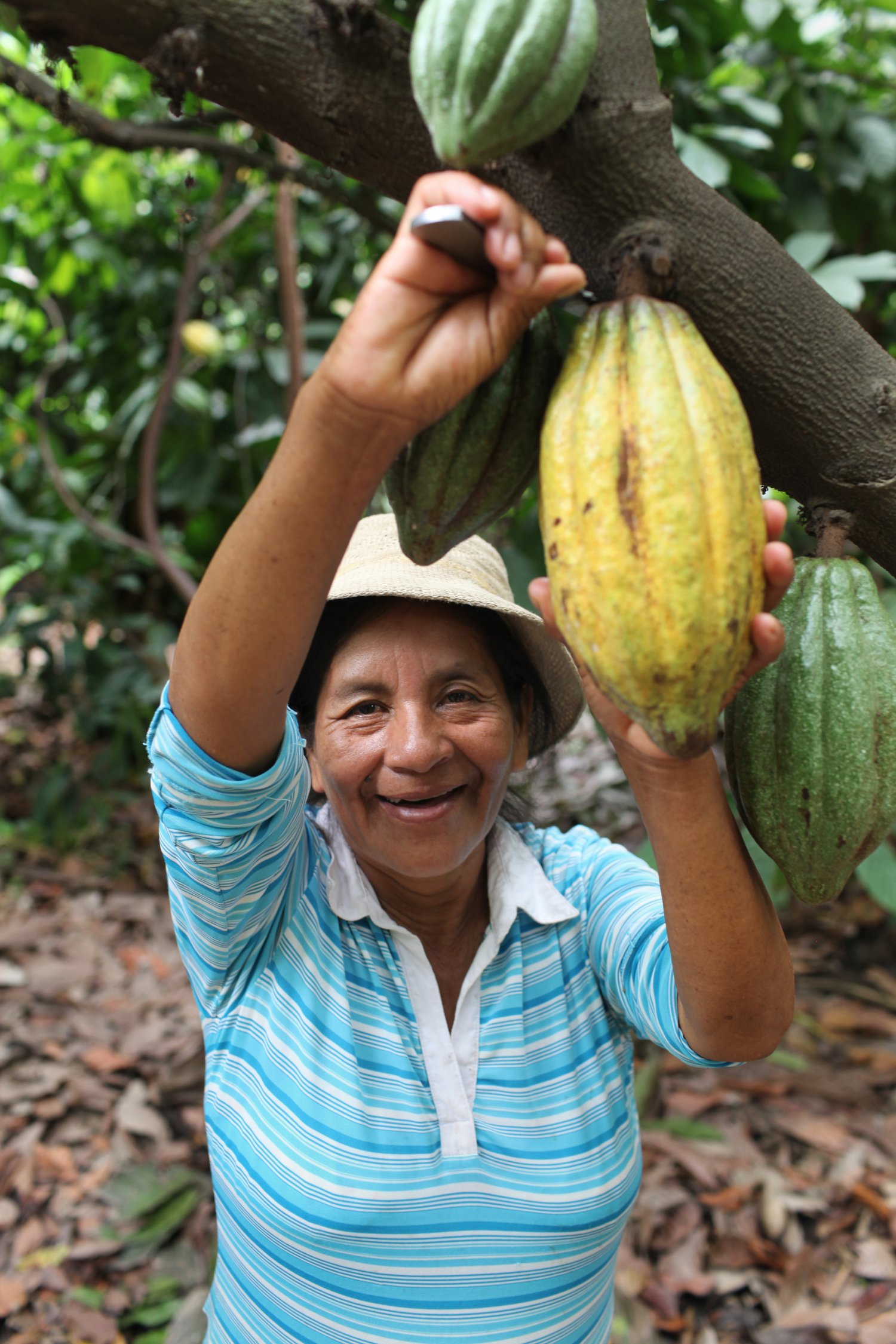
Gender equality is a fundamental human right, a key factor in sustainable development and economic sustainability, and is vital to achieving a prosperous future.
Despite this, gender disparities are a persistent form of inequality in every country, denying women their voices, autonomy, dignity, and well-being. Even though progress has been made, women and girls are often discriminated against in a broad range of contexts related to education, the labor market, health, and more. Fair Trade initiatives aim to promote women’s equity and combat these inequalities.
Women are disproportionately represented in low-wage jobs and in lower tiers of the supply chain but play a critical role in the global production system. For example, women make up 80% of the workforce in global garment supply chains, as well as more than 80% of the seafood processing sector and half of all workers in the seafood industry more broadly. Women also play a major role in the agricultural sector. Globally, 1 in 4 women is engaged in agriculture; across low-income countries, women make up about 43% of the broader agricultural labor force.
On top of their paid labor, women are responsible for the bulk of the child-care and household responsibilities – spending three times as many hours as men each day on these unpaid duties. These burdens rob women and girls of time to learn, socialize and connect with others, rest, and pursue other life-enriching activities.
From discriminatory laws – like restricting women’s rights to own and/or manage assets – to harassment and violence, to harmful social norms and expectations, women face a multitude of daily challenges that impede their ability to participate fully in society.
Evidence is clear that when women are empowered, entire families and communities thrive. As set out in the United Nation’s Sustainable Development Goals (SDG #5), we must achieve gender equality and always strive toward gender equity.
Fair Trade and Gender Equality
Fair Trade USA™ recognizes gender equality, gender equity, and women’s empowerment as core to its model and as essential for sustainable change and impact. As part of our commitment to continuous improvement, we seek to understand the role of women in Fair Trade supply chains, to ensure the model benefits and uplifts women, and to drive towards the vision of gender equality.
Woven throughout those standards is our commitment to ensuring that women in communities and workplaces receive an equal share in the benefits of their work. That includes ensuring not just equal pay, but also equal representation in leadership and decision-making power.
Our Approach to Gender
To achieve a future where women and men have equal opportunities and are equally empowered, it is first necessary to promote gender equity, or fair treatment, which levels the playing field so that men and women have equal ease of access to resources and opportunities. Fair Trade USA’s approach to gender equality and equity is three-pronged: 1) create a safe space for women, 2) focus on empowering women, and 3) recognize gender equality as a means of driving broader impact goals.
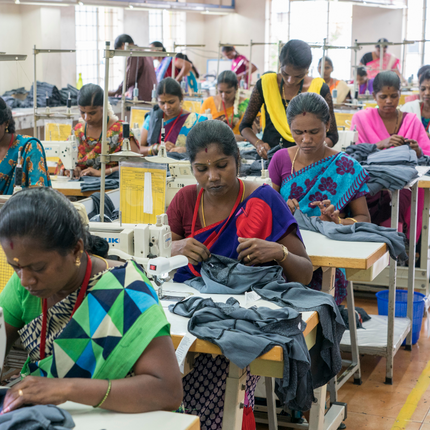
Creating a Safe Space for Women
Fair Trade Certified™ standards support the creation of a safe space for women. Fair Trade standards:
- Prohibit sexual harassment, abuse, and forced pregnancy testing and/or contraception.
- Prohibit discrimination in the workplace in hiring, wages, promotion, and access to training as well as discrimination against female small producers in areas such as prices, membership, and access to cooperatives’ services.
- Recognize protections and needs specific to women, such as working conditions while pregnant, maternity leave, and breastfeeding breaks as well as access to feminine hygiene products at fair prices.
- Require grievance systems and policies to be in place to enable all individuals to report incidents and concerns, and for these grievances to be reviewed and responded to in an appropriate manner.
Empowering Women
All aspects of the Fair Trade Certified program, from our standards and certification process, to producer services, to the Fair Trade Community Development Fund were designed with the empowerment of the program participants in mind and with the goal of raising the voices of those who have traditionally been less heard. Examples include:
- Fair Trade Committees must be representative of the workforce or the smallholder group, including being representative of gender.
- The program encourages the consideration of the particular needs of women when conducting trainings, assessing the needs of program participants, and determining Community Development Fund investments.
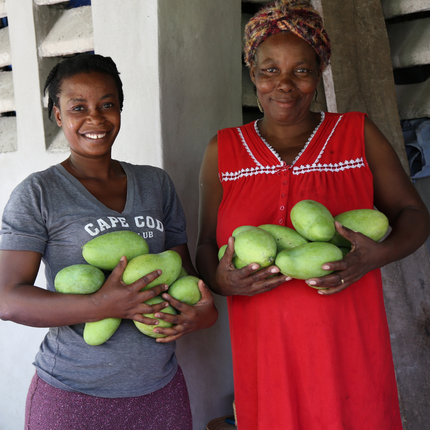
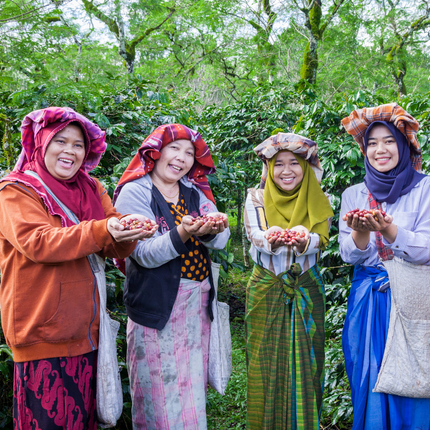
Fair Trade Recognizes Women’s Equity and Empowerment as Drivers of Change
Gender equity, gender equality, and women’s empowerment are directly linked to the other impacts goals we are working to achieve — increased education, income stabilization, and environmental stewardship are all linked to women’s empowerment. Advancing gender equality through Fair Trade initiatives is critical to a healthy society and has a powerful positive impact on communities. Studies have found that when women work they invest 90 percent of their income back into their families, compared with 35 percent for men. To help women succeed on their own terms, the Fair Trade program:
- Provides women more opportunities to make decisions about financial investments within their own families and collectively with other Program Participants.
- Helps ensure that women have the increased knowledge, opportunities, and confidence to increase their personal income and/or increase their participation in their family’s financial decisions.
Report: Gender Equity and Women’s Empowerment
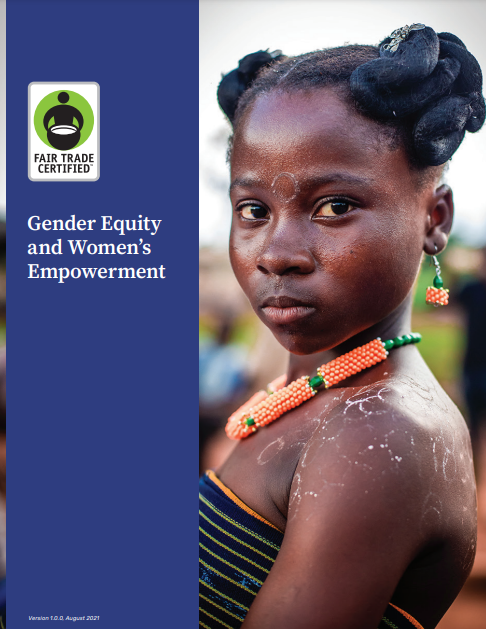
In this report, you will learn about:
- The role of women in the production system and the challenges they face
- How gender equity, gender equality, and women’s empowerment are core to our model and our approach to gender
- How we monitor and evaluate Fair Trade’s impact on equity for women and girls
Report: Unlocking Economic Empowerment for Women
In this report, you will learn about:
- Examples of standards, frameworks, and social sustainability accounting systems that include gender equity
- How Fair Trade Certified programs help close gender equity gaps
- Key themes from our research interviewing more than 100 female program participants across the world
- Testimonials and stories from real women about how Fair Trade Certified has impacted their lives
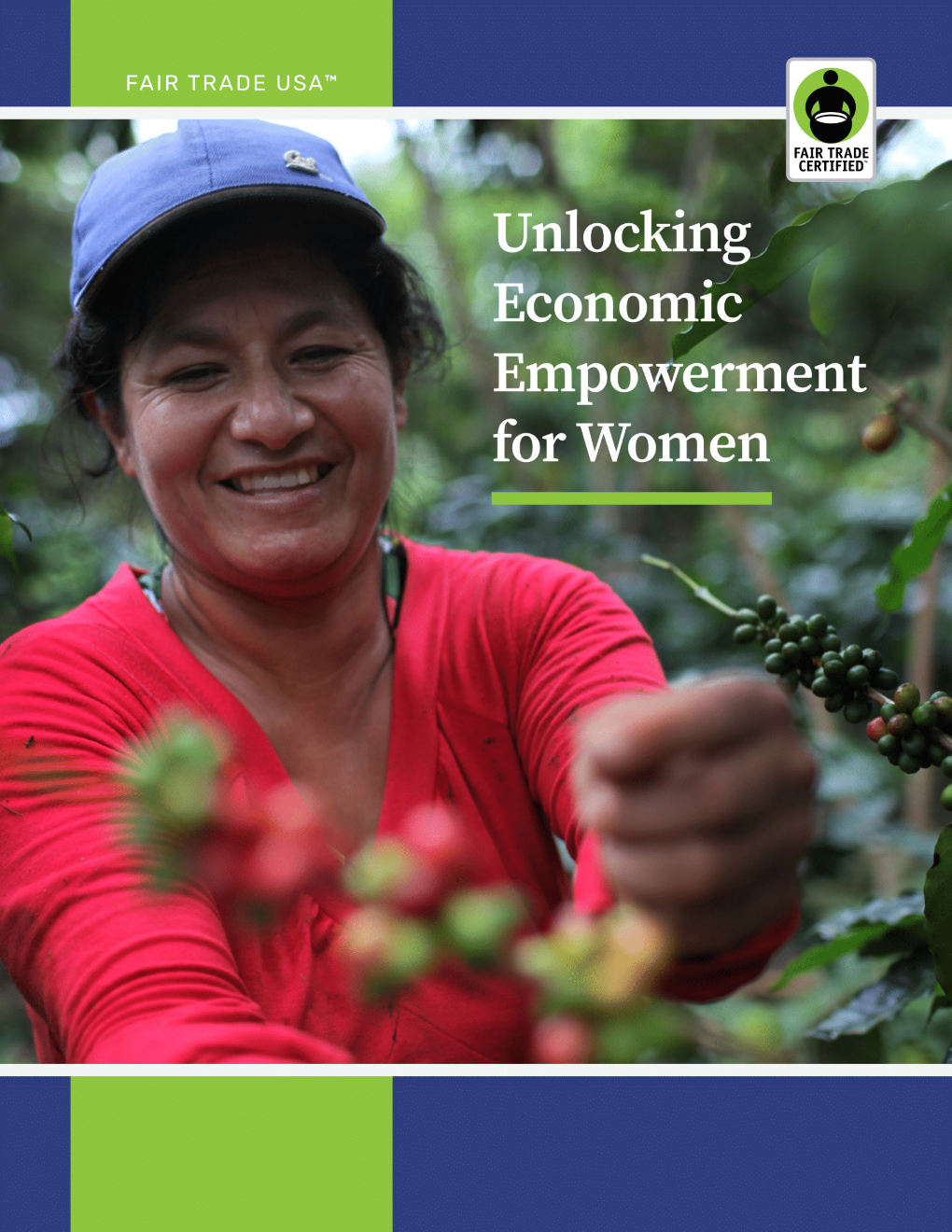
Women in the Fair Trade Movement

Elvia Almachi
“Before I worked in a different local flower company and they exploited us. Even while I was pregnant! Once I came here, I could tell the difference was huge. We would like for everyone in Ecuador who works in the flower industry to have the same great benefits we do here.. It is through these Fair Trade flowers that hundreds of families, like mine, continually improve our lives.”

R. Sumita
“People see me as an initiative taker and someone who’s responsible. I speak to everyone without reservation.”
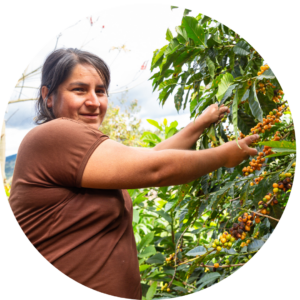
Andrea Herrera Ocupa
“La Prosperidad has a special group for women agriculture members. As members of the cooperative which is Fair Trade Certified, we are able to have more savings and can provide a better life to our children.”
Related Blog Posts
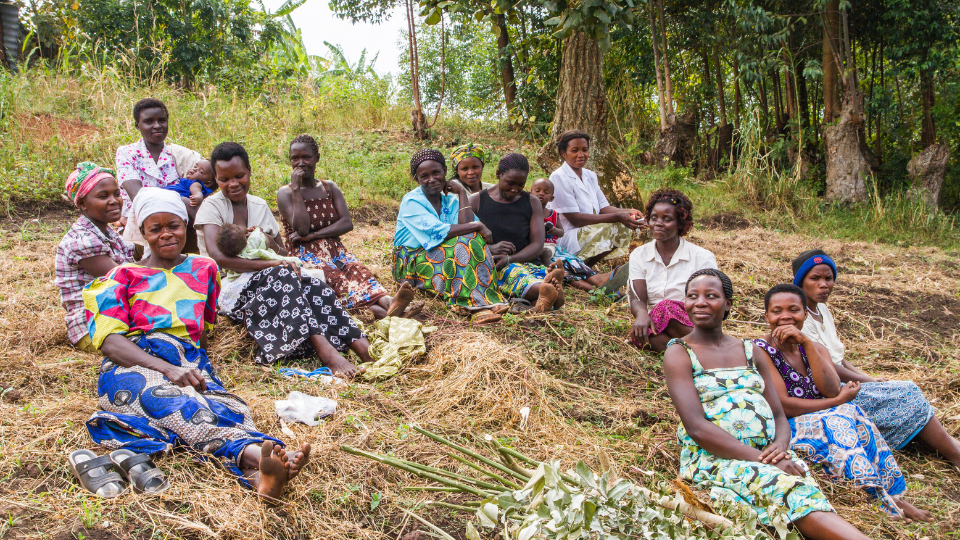
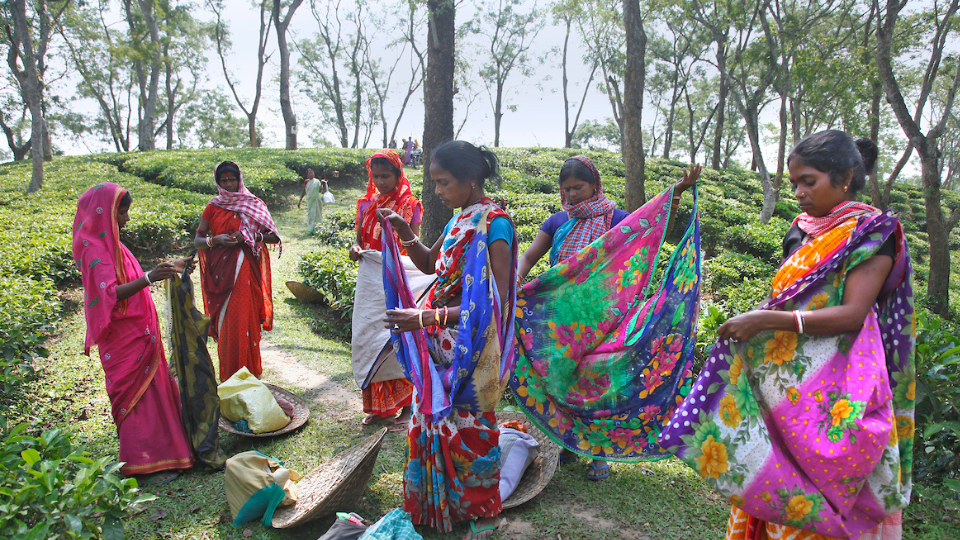
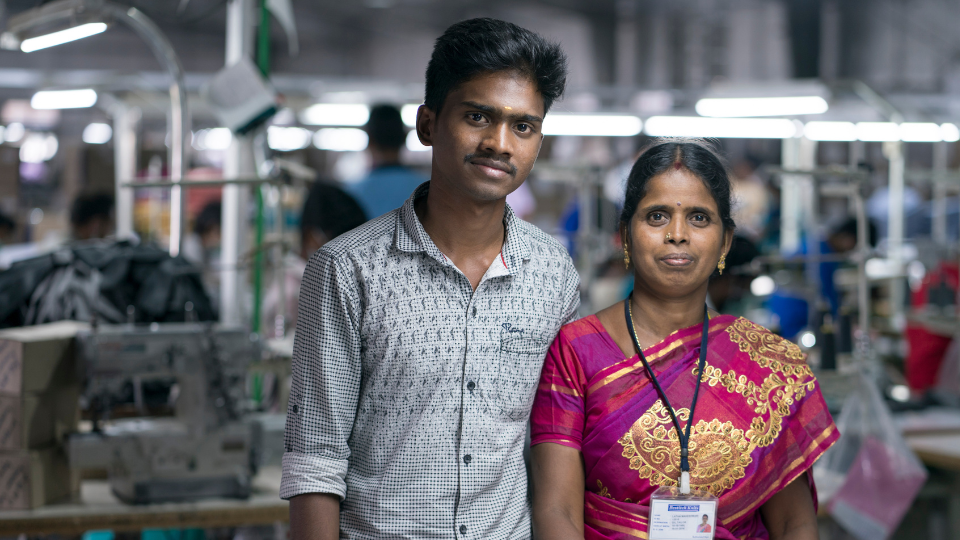
Get Started with Fair Trade Certified
Learn about sourcing, selling, and promoting Fair Trade Certified products and get started on your better business journey!